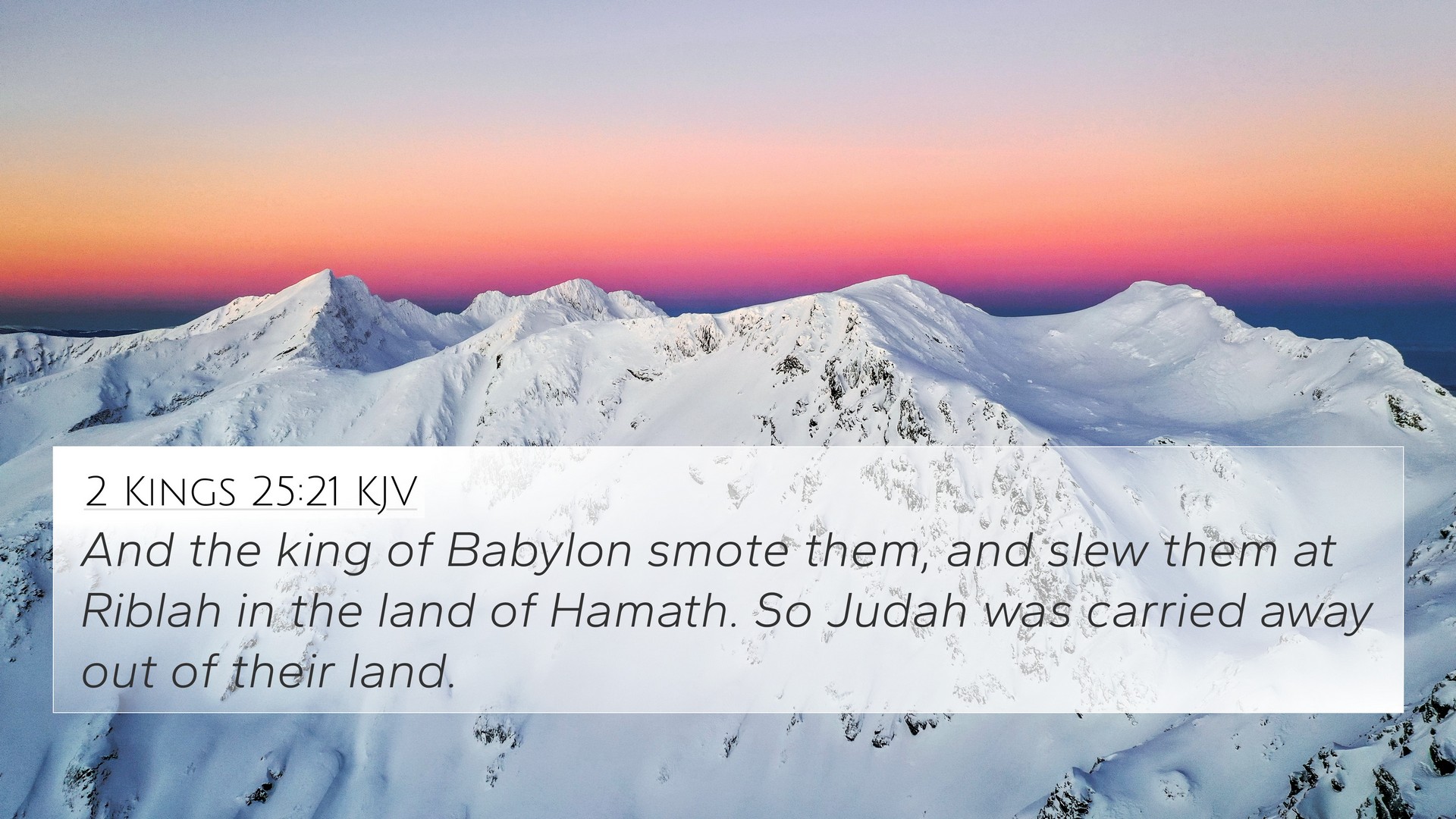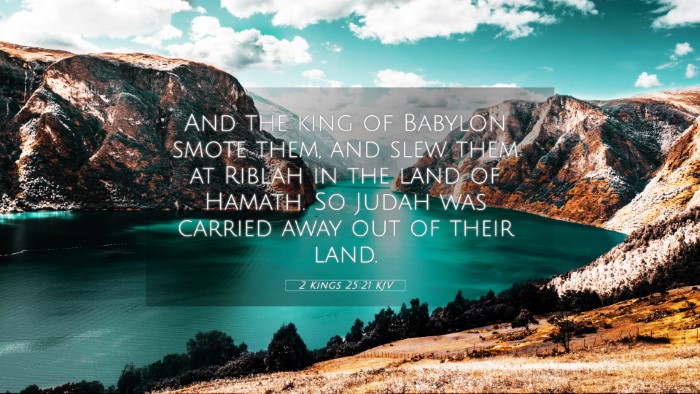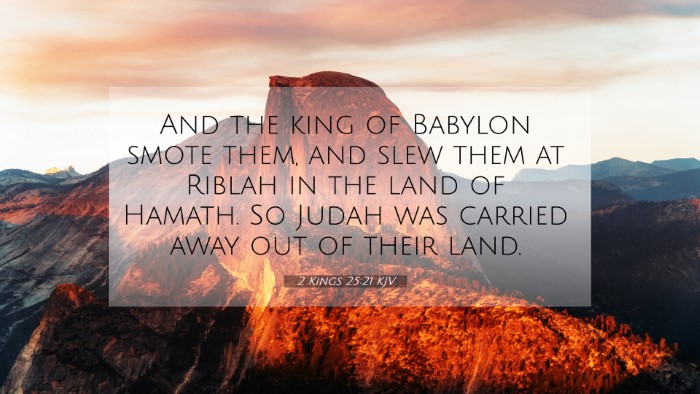This section features a detailed cross-reference designed to enrich your understanding of the Scriptures.
Below, you will find carefully selected verses that echo the themes and teachings related to 2 Kings 25:21 KJV. Click on any image to explore detailed analyses of related Bible verses and uncover deeper theological insights.
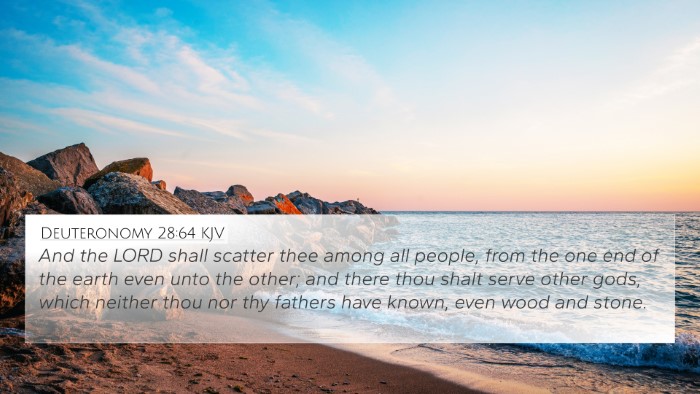 Deuteronomy 28:64 (KJV) »
Deuteronomy 28:64 (KJV) »
And the LORD shall scatter thee among all people, from the one end of the earth even unto the other; and there thou shalt serve other gods, which neither thou nor thy fathers have known, even wood and stone.
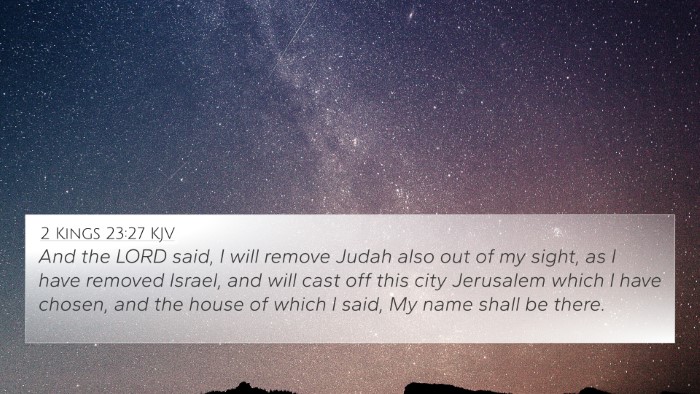 2 Kings 23:27 (KJV) »
2 Kings 23:27 (KJV) »
And the LORD said, I will remove Judah also out of my sight, as I have removed Israel, and will cast off this city Jerusalem which I have chosen, and the house of which I said, My name shall be there.
 Leviticus 26:33 (KJV) »
Leviticus 26:33 (KJV) »
And I will scatter you among the heathen, and will draw out a sword after you: and your land shall be desolate, and your cities waste.
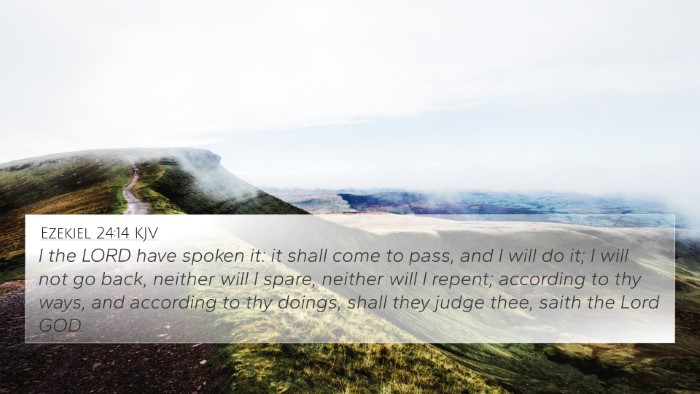 Ezekiel 24:14 (KJV) »
Ezekiel 24:14 (KJV) »
I the LORD have spoken it: it shall come to pass, and I will do it; I will not go back, neither will I spare, neither will I repent; according to thy ways, and according to thy doings, shall they judge thee, saith the Lord GOD.
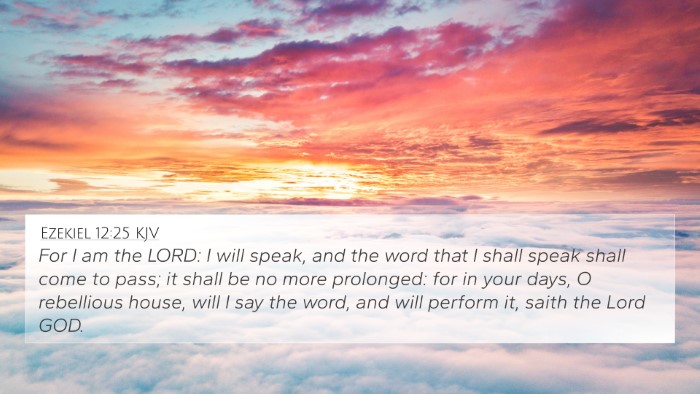 Ezekiel 12:25 (KJV) »
Ezekiel 12:25 (KJV) »
For I am the LORD: I will speak, and the word that I shall speak shall come to pass; it shall be no more prolonged: for in your days, O rebellious house, will I say the word, and will perform it, saith the Lord GOD.
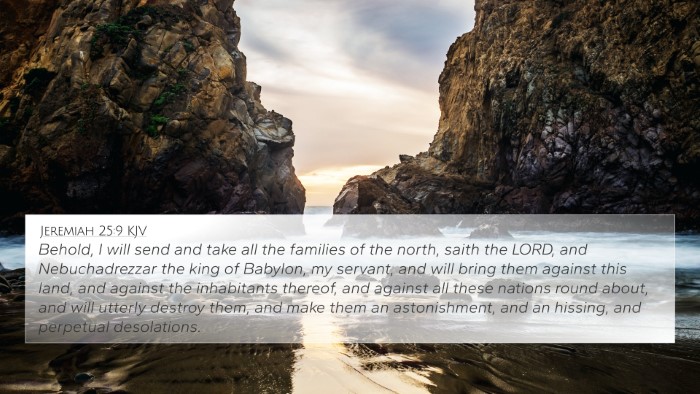 Jeremiah 25:9 (KJV) »
Jeremiah 25:9 (KJV) »
Behold, I will send and take all the families of the north, saith the LORD, and Nebuchadrezzar the king of Babylon, my servant, and will bring them against this land, and against the inhabitants thereof, and against all these nations round about, and will utterly destroy them, and make them an astonishment, and an hissing, and perpetual desolations.
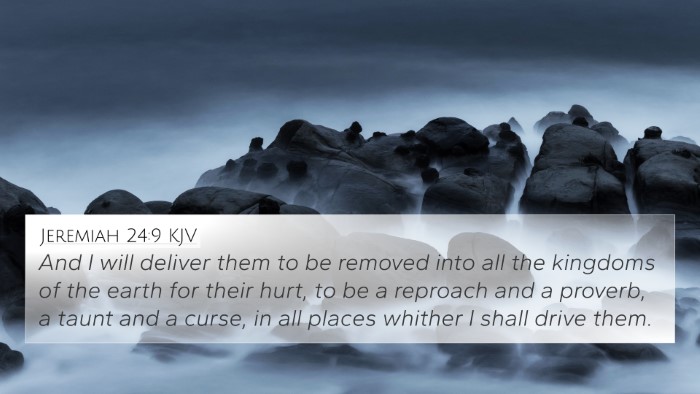 Jeremiah 24:9 (KJV) »
Jeremiah 24:9 (KJV) »
And I will deliver them to be removed into all the kingdoms of the earth for their hurt, to be a reproach and a proverb, a taunt and a curse, in all places whither I shall drive them.
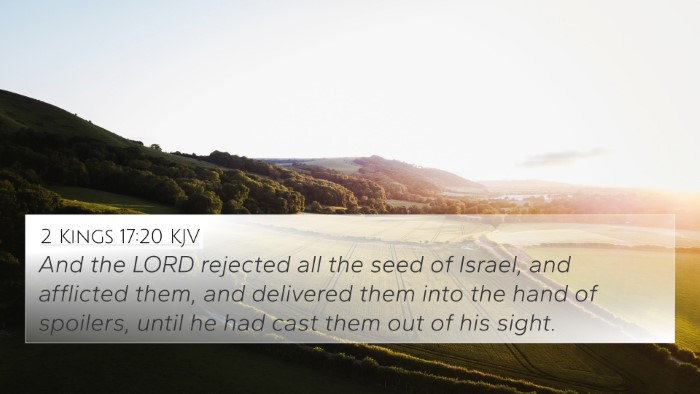 2 Kings 17:20 (KJV) »
2 Kings 17:20 (KJV) »
And the LORD rejected all the seed of Israel, and afflicted them, and delivered them into the hand of spoilers, until he had cast them out of his sight.
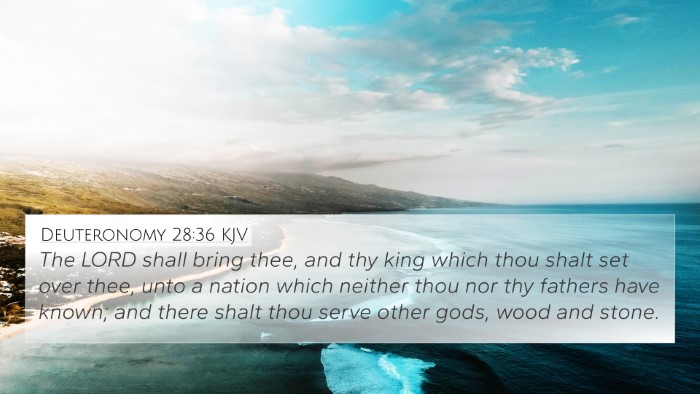 Deuteronomy 28:36 (KJV) »
Deuteronomy 28:36 (KJV) »
The LORD shall bring thee, and thy king which thou shalt set over thee, unto a nation which neither thou nor thy fathers have known; and there shalt thou serve other gods, wood and stone.
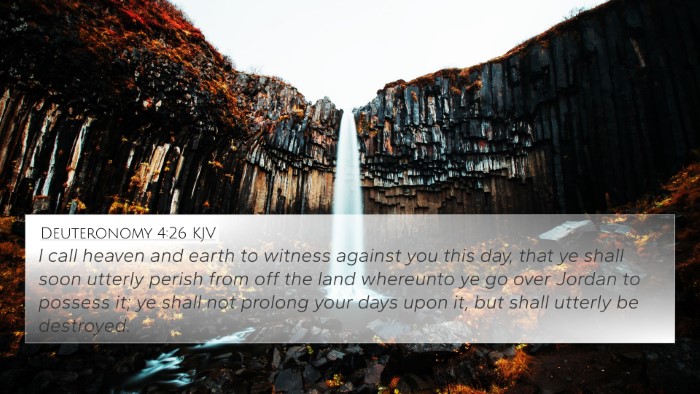 Deuteronomy 4:26 (KJV) »
Deuteronomy 4:26 (KJV) »
I call heaven and earth to witness against you this day, that ye shall soon utterly perish from off the land whereunto ye go over Jordan to possess it; ye shall not prolong your days upon it, but shall utterly be destroyed.
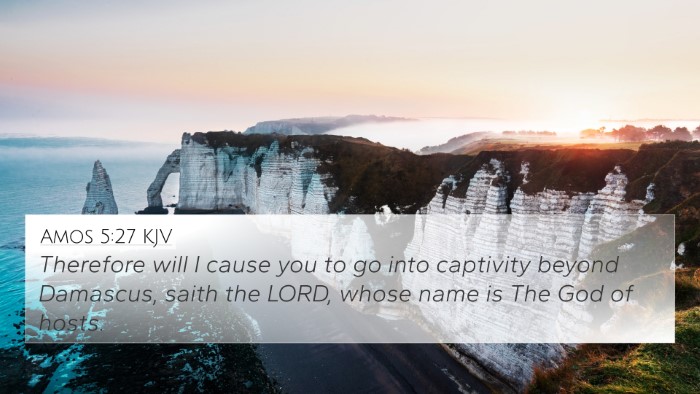 Amos 5:27 (KJV) »
Amos 5:27 (KJV) »
Therefore will I cause you to go into captivity beyond Damascus, saith the LORD, whose name is The God of hosts.
